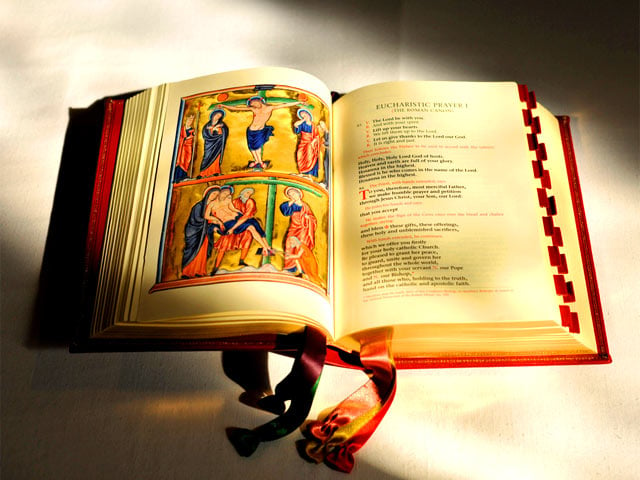- Accueil
- Notre communauté
- Notre foi
- Nos ministères
-
Vie paroissiale
- Calendrier des événements
- St. Aidan's Video Links
- Blog paroissial
- Archives des nouvelles
- Mass Etiquette and Information
- Ad Orientem News and Facts
- Catholic Links
- Prayers and Announcements
- Luis Dizon Reflections - Archive
- Bulletin
- Nous contacter
- Recherche

Trial and Victory (5th Sunday of Easter)
Click here for this Sunday’s readings
Throughout his first missionary journey, St. Paul travelled to many places throughout the Eastern Mediterranean, including Cyprus (13:3-12), Perga (13:13) Pisidian Antioch (13:14-52), Iconium (14:1-7), and Lystra (14:8-23), as well as several smaller towns in Galatia (which are mentioned in our reading). In these cities, Paul performed many miracles and gained many converts, but also encountered much opposition, and in Lystra, he was even stoned and left for dead, although he actually managed to survive (14:19-20).
These experiences would inform his message to newly-ordained clergy of the churches he founded in Galatia. He informs them that they and their flocks will face many trials before entering God’s kingdom (v.22). He tells them this that they would not lose hope but be strengthened and prepared for when it comes. Indeed, persecutions soon broke out in that region, resulting in many martyrs.
However, believers were not to lose hope, because the trials they would face not only lead them to heaven, but also the salvation of many souls. Indeed, Paul rejoices that God had “opened a door of faith to the Gentiles” (v. 27). Through it all, he affirms that it is God at work in them, meaning that ultimately, it is not their own efforts that produce fruit, but the grace of God.
This pattern is repeated in every age, where Christians face trials for their faith, but this ultimately brings about the growth of Christianity. As Tertullian once said, “the blood of the martyrs is seed,” which means that it is when the fires of persecution are most intense that God is most actively at work, converting souls and expanding His Kingdom.
J. Luis Dizon
